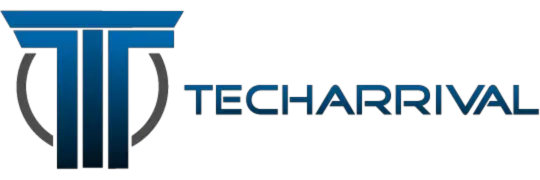When it comes to succeeding in the workplace, your communication skills are equally important as your degree or years of experience. Today, the demand is high for people with “soft skills”- the quality that will enable you to be more interactive with other people and hence being more productive.
To properly understand what a case interview is and how best to prepare to ace the test, it is significant to start with the basics. Understanding what will be needed to succeed will represent the basis of a successful preparation plan. Starting with a few essential questions, you can take the first steps to ensure you ace the case interview.
What Is The Purpose Of The Case Interview?
The case interview is developed to evaluate the candidate’s analytical and soft skills. During the case interview, the applicant consultant will be presented with a real-life scenario of a business issue for which they must adequately provide a successful solution. The answer to a case study question involves much more than recounting the
Depending on the firm you are interviewing for, case interviews can be presented in various forms like the verbal or written format and may address a number of topics. It is mostly seen that interviewers deliberately hide or excludes key details when asking to resolve the hypothetical case problems. So, it is totally okay to ask the interviewer for more information on the problem. They also want to see if you are capable of identifying important information.
What Skills Are Tested During The Case Interview?
The case interview is designed to test both hard and soft skills. In a case interview, the correct answer is not that important as the process you use to achieve that solution. When answering the case interview, your ability to analyze the situation or dilemma, identify the important issues and information, and develop the most sound and effective conclusions from the analysis. In the end, your presence of mind will get you the job.
How you behave and approach the problem also plays an important role in the case interview assessment. These typically include:
- Problem-solving skills
- Organizational ability
- Effective communication skills
- Analytical skills
- Entrepreneurial creativity
- Social skills
What Are Soft Skills?
Hard skills are specific skills needed to perform the job and represent skills that can be coached. Soft skills refer to personality and people skills. Soft skills further compliment the consultant’s hard skills and go hand in hand during the case interview assessment. A potential applicant’s soft skills equally contribute to the general assessment of their fit for purpose in the workplace.
Soft-skills include traits like leadership, self-awareness, emotional intelligence, and communication skills. If that is not enough, the no 1 thing that is looked for in a candidate when hiring at Google is a general cognitive ability which is not I.Q. Second thing that the company looks for is leadership so that when faced a problem they will step in and lead. The third and fourth is humility and ownership. At first, though, this is not usually expected for a tech company who’s more than half of its work involves technical information. This implies the importance of soft-skills to land on those Fortune500 companies.
Even you are halfway in your carrier and have not paid much attention to soft-skills in the past, they are still important. Having soft skills or developing them can be a huge game-changer in your career and can ramp-up your slow career growth. It can be the difference in getting your peers to remember and believe in you or being forgotten, the difference in getting confirmation for a project or getting rejected, the difference between getting a promotion and going up the ladder or changing your job. These skills will not just help in your job but ultimately making you better and a more capable human being as well.
What Are The Best Soft Skills For Consulting?
While the specific list of key skills a consultant should typically have will typically vary from one firm to the next, there are a few key interpersonal skills every consultant should possess. These include:
- The ability to perform within a team
- Cognitive skills
- Excellent oral and written communication skills
- Good listening skills
- Strong leadership skills
- Positive and loyal work ethics
The test is designed to assess both soft and hard skills. In addition to the fundamental questions that determine your problem solving and analytical skills, you will also be asked questions intended to assess your soft skills. As a consultant, it is not only critical you resolve the problem you are presented with. You will rely on your soft skills, like leadership and entrepreneurship skills to convince the client to buy into your recommendations and suggested solutions.
Below we will be explaining some soft-skills that are important and should be practice in your day-to-day interactions.
Listening

This is the most important factor in communication. So important that there can be articles just describing the benefits of it. We often assume good communication with better public speaking but the best communicators actually let the other guy speak and share his viewpoint.
This is the easiest way to build trust with other people in your workplace. The most valuable thing you can give them is your undivided attention. By being a good listener and asking follow-up questions, your communication with others will improve in no time.
Taking Accountability

Mistakes do tend to happen all the time. But what matters is our reaction. No one likes when we are responsible for wrongdoing and we try to cover up by making excuses, ignore or blame others. That will be the shortcut way to lose your trust with others. Take full accountability and responsibility for your own actions. Learn something from that mistake and analyze what you could have done to prevent it.
Also, being able to follow tasks that you have promised will retain the trust others have in you. This includes not making assumptions and your capacity to provide what you say. This the main core of integrity and building trust.
Emotional Intelligence or EQ
Emotional Intelligence is the capacity to be aware of, and control and
An online survey conducted by High Point Carolin found that 65% of the executives wanted colleges to build up students life skills while 35% of them wanted colleges to train their students on a specific skill or software. The survey pointed out that 29% of respondents said the students fail in the real working world due to their lack of emotional intelligence. The employers in the survey preferred students with life skills because it is harder to instill those qualities in someone who doesn’t possess them already.
Creative Thinking

We have been told to think out-of-the-box from our early childhood. But what exactly it means and are we able to follow it.
Being creative and thinking out-of-the-box means finding solutions with limited resources. This doesn’t mean finding short-cuts and instead means finding smart ways to achieve it. The company with a big budget or manpower doesn’t always finish first. The most creative and innovative ways to determine success.
Empathy
Empathy also plays a big part in the crowd liking you. This particular trait is found in politicians, CEO and upper-level managers. It is good to go out of your room once, clear your head and have new experiences that will allow you to build and grow empathy for others.
Common steps taking volunteering, helping others, sharing loads, attending conferences,
Practice Your Soft Skills
It is significant that practicing your soft skills forms part of your case interview preparation plan. Practicing soft skills is frequently overlooked during case interview preparation, with the key focus solely on enhancin problem solving and analytical skills.
For example, make time to practice your communication skills.
This includes listening, oral and written skills. You will be presenting your findings and recommendations and it is important that you are confident in your communication skills. Remember to maintain eye contact and make sure to acknowledge the entire audience. Also, a fundamentally essential point to remember, focus on what is being said and ask questions to clarify. As a consultant, you cannot correct the problem unless you clearly understand exactly what the problem is.
This was what soft skills are about. It’s not for that high-paying job or promotion but ultimately making you more capable and better. This may look simple but practicing them daily and can win you hearts.
